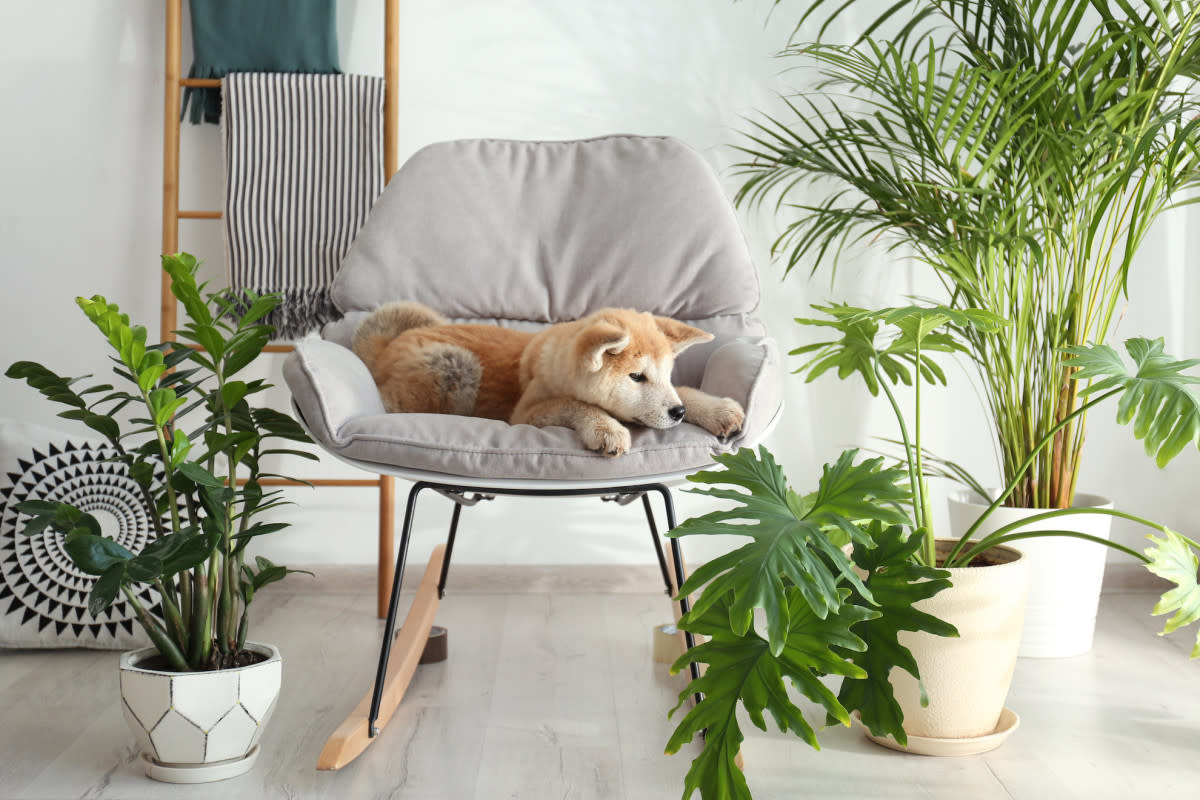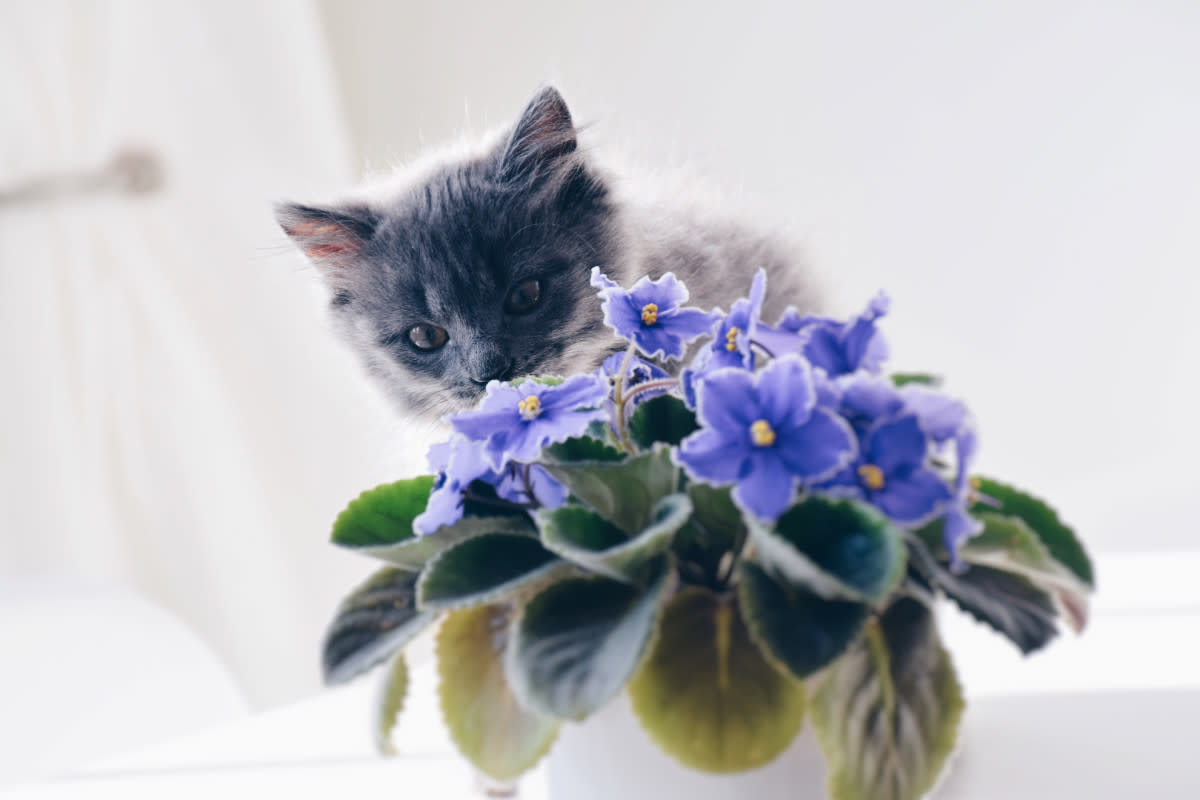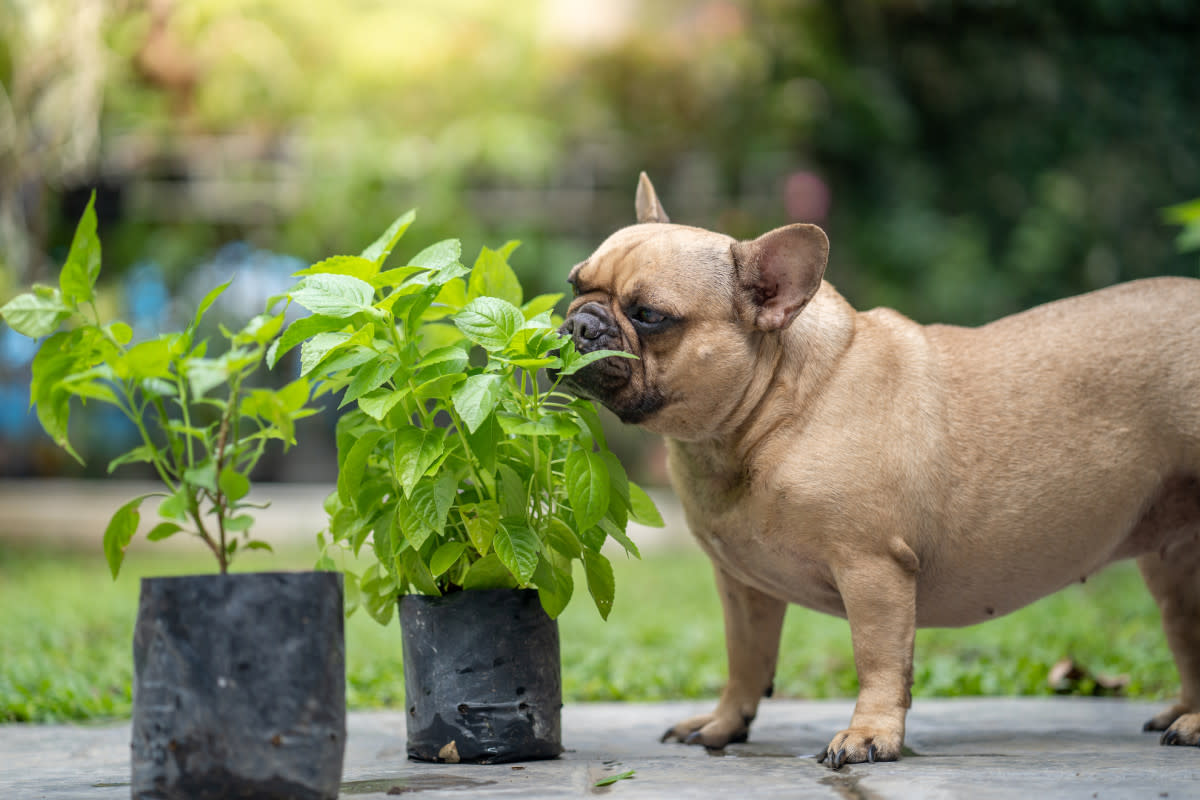Veterinarian Shares Which Spring Houseplants Are Safe for Dogs and Cats
One of the most reasonable and rewarding home decor improvements you can make to your home is adding new houseplants. Houseplants help to purify the air by absorbing carbon dioxide and other pollutants while releasing oxygen. Studies have shown that houseplants can promote relaxation. And houseplants just make your home look like, well, a home.
But if you have cats and dogs there are special considerations to think of before you hit up the plant store, because not all houseplants are safe for pets, especially if your pets tend to snack on things like plants.
Related: Valentine's Day Flowers to Keep Away From Pets at All Costs
Pet Poison Prevention Week starts on March 17th and
Veterinarian Jamie Freyer with Honest Paws shares plants that can pose a risk to pets. “Some plants, such as dahlias, chamomile, chrysanthemums, and calla lilies, can cause contact dermatitis and painful sores on the skin and mucous membranes. Other plants, like daffodils, bluebells, hydrangea, gladiola, baby’s breath, and aloe, can cause gastrointestinal signs like vomiting and diarrhea."

New Africa/Shutterstock
"Fruit-bearing trees produce fruit like cherries, peaches, and apples, whose aroma and flavor are appealing to dogs despite the toxic properties of their seeds. One cup of apple seeds can be toxic to an adult human, so it can take very little to affect a small dog or other small pet. Some plants like lilies, rhododendrons, oleander, sago palm, milkweed, and the needles of the yew tree can even cause death if ingested in large enough amounts.”
Safe Plants for Your Pet
Flowering houseplants:

JulieK2/Shutterstock
These include Gloxinia, Lace Flower Vine, African Violet, Hoya, Orchid, Lipstick Plant, Bromeliad.
Flowing, climbing, and cascading plants:
Boston Fern, Swedish Ivy, Spider Plant, Aluminum Plant, Baby Tears, Staghorn Fern
Foliage houseplants:
Royal Velvet Plant, Prayer Plant, Calathea, Bird’s Nest Fern, Chinese Money Plant
Herbs:

Tienuskin/Shutterstock
Basil, Rosemary, Dill, Thyme, Sage, Cilantro, SavorySucculents: Echeveria, Burros Tail, Christmas Cactus
Some people on social media have also found this at their local Home Depot.
It's so important for pet parents to be aware of which plants are safe to have around their fur babies, because plants are the eighth-most reported pet toxin, accounting for 40% of all calls to animal poison control.
What to Do if Your Pet Eats a Poisonous Plant
Despite how much we work like a dog to keep our pets safe, sometimes they still manage to eat poisonous plants.
If you believe your pet may have ingested a poisonous plant, call for help immediately from either the ASPCA Animal Poison Control Center at (888) 426-4435 or the Pet Poison Helpline at (855) 764-7661.
Gnawed leaves or missing flowers aside, some common signs your pet might have ingested or been in contact with a poisonous plant include:
Cat Seizures / Dog Seizures
Loss of appetite
Drooling
Abnormal behavior
Excessive thirst or urination
Weakness
Creating a pet-safe home doesn’t mean you have to sacrifice other things you love. Being informed about pet-friendly plants and other plants’ toxicity levels can go a long way in creating a healthy haven that supports your overall wellness and, in turn, your pet's well-being.
For more information about Honest Paws and all of their products, you can visit their website here.
Looking for more PetHelpful updates? Follow us on YouTube for more entertaining videos. Or, share your own adorable pet by submitting a video, and sign up for our newsletter for the latest pet updates and tips.
